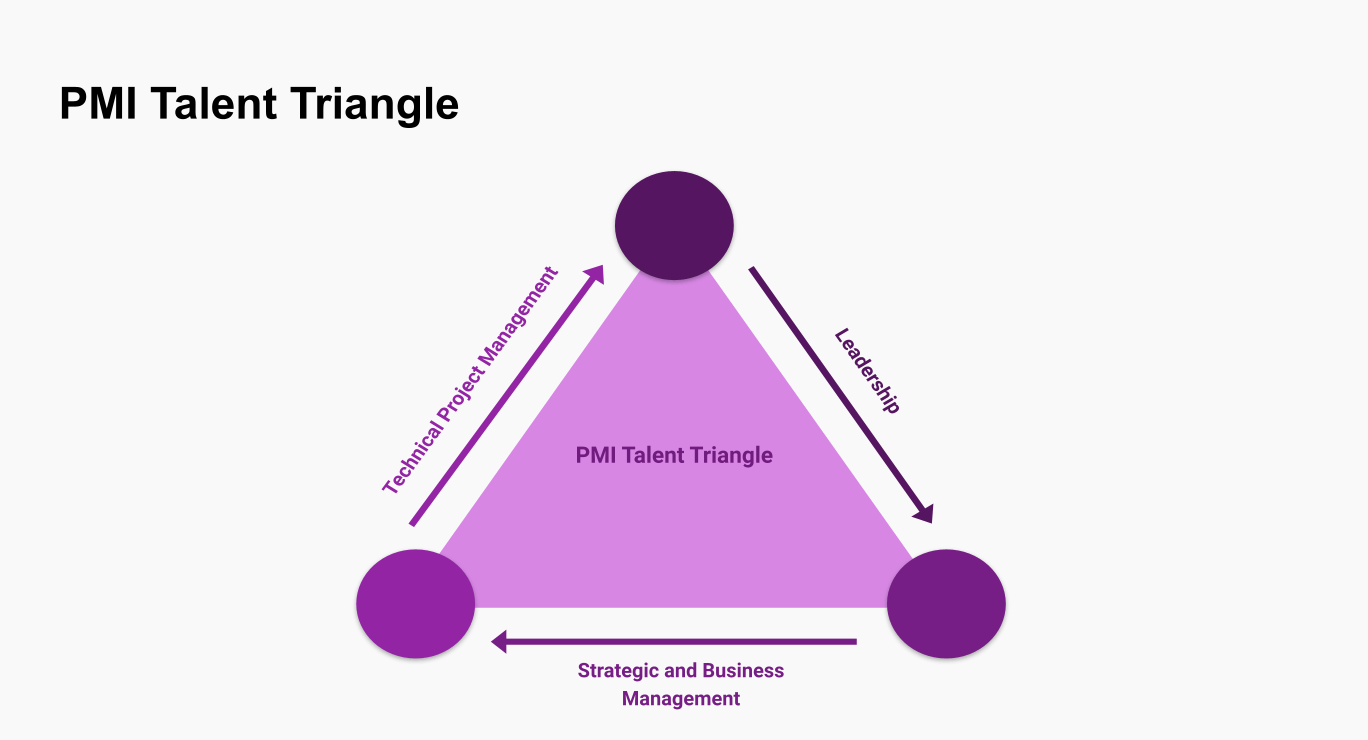Understanding the PMI Talent Triangle: The Key to Becoming a Successful Project Manager
October 1, 2024 · 7 min read
Being a project manager is about much more than just managing tasks and deadlines. It's about weaving together a mix of technical skills, leadership qualities, and business strategy to drive projects forward successfully. To help guide professionals in achieving this balance, the Project Management Institute (PMI) developed a model known as the PMI Talent Triangle.
Let’s break down this essential framework and explore how each of its three components of the PMI triangle contributes to effective project management.

1. Technical Project Management Skills
When it comes to technical project management, it's all about the nuts and bolts of running a project. This includes planning the timeline, choosing the right methodology (Agile, Waterfall, or hybrid), and keeping the project on track by controlling scope, budget, and resources.
Think of technical skills as the engine that drives the project forward. A project manager who excels here knows how to:
- Build accurate project timelines.
- Manage risks and mitigate issues.
- Organize and assign tasks effectively.
Without this, a project could easily veer off course, and even the most talented team might struggle to deliver the desired outcomes. In short, the technical side of project management ensures that the team has a clear roadmap and can execute tasks efficiently.
2. Leadership
Leadership is the glue that holds your team together. While technical skills keep the project moving, leadership skills ensure that the people behind the project are motivated, aligned, and working well together. These so-called "soft skills" are essential for:
- Effective communication. Keeping your team and stakeholders in the loop, managing expectations, and avoiding misunderstandings.
- Team motivation. Encouraging your team through challenges and ensuring they stay focused on the bigger picture.
- Conflict resolution. Navigating difficult conversations and conflicts within the team in a productive manner.
It’s not just about telling people what to do — it’s about inspiring them to do their best work. Empathy, active listening, and emotional intelligence are all cornerstones of leadership. Without these skills, even the best-laid plans can falter as team morale drops or conflicts derail progress.
3. Strategic and Business Management Skills
Finally, project managers need to understand how their projects align with broader business goals. This is where strategic and business management skills come into play. These involve:
- Knowing the market in which your company operates.
- Understanding the needs of both clients and stakeholders.
- Being aware of industry trends and the direction the market is heading.
It’s not enough to simply complete a project on time and within budget — it’s crucial to ensure that the project delivers real value to the organization. This could mean anything from improving processes to increasing revenue or launching a product that captures market share. Successful project managers can connect the dots between their projects and the company’s long-term objectives, ensuring that every decision moves the business forward.
Why the PMI Talent Triangle Matters
The PMI Talent Triangle emphasizes the need for a balanced skill set. Focusing on just one area might make you a great planner, communicator, or strategist, but to truly excel, you need to bring all three together.
Here’s why this balance is important:
- Overemphasizing technical skills. You might have all the plans and tools in place, but if you lack leadership, your team might not be as motivated or engaged to see the project through.
- Relying only on leadership. You could be great at building rapport and keeping the team happy, but without the technical know-how, your project could easily go off track.
- Focusing solely on business strategy. You might have a clear understanding of the big picture, but if you can’t manage the day-to-day or lead your team effectively, your vision might remain unfulfilled.
By balancing all three areas, you not only ensure project success but also position yourself as a versatile and valuable leader within your organization.
Wrapping Up
Successful managers plan meticulously, lead their teams with empathy and motivation, and understand how their project fits into the larger business strategy. This trio of skills – represented by the PMI Talent Triangle – is the recipe for taking a project from concept to completion.
So, are you ready to become the complete package and level up your project management game? The PMI Talent Triangle is your roadmap to success!
About the Author
Violetta Chernobuk is a skilled content strategist and writer at Planyway, specializing in crafting insightful and engaging articles on productivity and project management. With her keen eye for detail and a deep understanding of user needs, Violetta ensures that every piece of content is both informative and inspiring, helping readers optimize their workflows and stay ahead in their projects.


